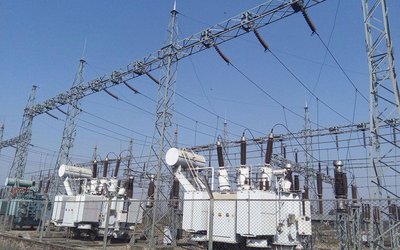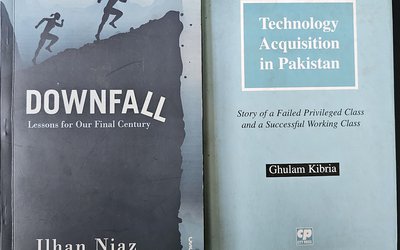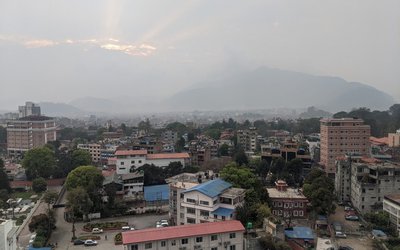‘Constitution is a legitimate device for exercising sovereigntyof a democratic state’, wrote Justice Thomas Cooley, a prominent constitutional scholar of the nineteenth century, in his Treatise on Constitutional Limitations. Designated authorities of the state and individual citizens are either empowered to exercise or obliged to respect the use of sovereign power as per the dictates of constitutional provisions and their underlying principles, including evolved democratic conventions and institutional practices applied in democratic world through internalisation processes. Such processes are both constitutional and political, and developed for the benefit of people and in the larger national interest. During crises, however, the danger of such processes from being derailed, blocked or distorted increases. Exceptional provisions are entrenched in democratic Constitutions for a wise and rational exercise of extraordinary powers for redressing problems and bringing the derailed process back on the constitutional track. Present day Nepal is at the constitutional and political crossroads facing serious obstructions caused due to undesired and unexpected termination of the representative Constituent Assembly on May 27, 2012. The challenge before the constitutional experts and political scientists is to offer suitable constitutional and political exits leading the country to a democratic election for enabling people to decide.
The Interim Constitution of 2007, which was an outcome and legitimate device of the mandate of the Second People’s Movement (2006), was originally meant for less than three years until it had not been replaced by a new Constitution. However, it has now been stretched longer due to extraordinary situation created by the failure of the Constituent Assembly to produce a constitutional draft for adoption.Who is to be blamed for this? No one but the top authorities of the Assembly, including party leaders, incumbent government and all CA members,who must be accounted forCA’s failure despite people’s utmost trust on them. Free and fair elections for another CA through democratic means are possible if the country gets a consensual government for opening constitutional obstacles.
The Supreme Court’s directives to the CA Chairman and PM to work out on options at the CA before it expired,went to their deaf ears. Even the smaller parties and individual members paid no attention tothe Supreme Court orders, and opinions articulated in subsequent cases. Blame games and mudslinging prevailed all through, till CA’s death until now. As a consequence,the country already in acute crises, is being governedtoday on ad hoc basis under a caretaker administration. The right to democratic exitthrough electoral ballots, unconstitutionally denied to the people since the dissolution of CA, may only be secured by activating extraordinary provisions of the Interim Constitution. “Political consensus” amongst political forces is a must in order to form a ‘national unity government’ which may legitimately enable the Head of State exercise ‘extraordinary power’ under Article 158 of the Interim Constitution for removing constitutional obstacles on the way towards electoral polls. Over seven months of immensely valuable period of the nation have been wasted by the Government and the parties against the will of the people despite serious presidential efforts.Attention is drawn in this note towards extraordinary devices, in the words of Justice Thomas Cooley, for the legitimate exercise of sovereignty under the Interim Constitution.
The Interim Constitution has mainly four extraordinary provisions that allow the President, as Head of State, to exercise powers in special situations in the interest of the nation but on the advice of the Council of Ministers. The first is the Executive Power to ‘declare a State of Emergency’ by Proclamation or Order (Article 143). Second is the Legislative Power to promulgate ‘Ordinance’ (Article 88) in absence of parliament or when there is no parliamentary session. Third is the Military ( a form of Executive) Power, under civilian control, to be managed and mobilized within the constitutional and legal framework if there need be (Article 144-148). And the Last is a blend of constituent, legislative and executive powers, which normally do not exist in any democratic Constitutions (except India, Pakistan and Bangladesh for a limited purpose), and is to be exercised in exception for ‘removing difficulty’ in the implementation of the Constitution (Article 158). But the exercise of all these powers is subject to parliamentary scrutiny.
For a legitimate political exit under minimum constitutionalism, the present situation demands the exercise of two exceptional powers (Removal of Constitutional Obstacles and Issuance of Ordinances under Articles 158 and 88) without immediate parliamentary scrutiny as envisaged by the InterimConstitution. In the appointment of Supreme Court Justices and Constitutional Commissioners, which has become so urgent, a way out must be constitutionally innovated. The nature and scope of both these ‘extraordinary powers’ have been contextually interpreted by the Supreme Court in some cases so far, and its scope may be further expanded.
The use and abuse of the provision of the ‘Removal of Constitutional Obstacles’ in the past is certainly a matter of concern for all democratic Nepalese. Equal concerns are with regard to the potential use of the unexplained nature and scope of Head of State’s functions and principal obligations (duties) under Article 36 A,in harmony with other constitutional provisions and democratic practices. In the government formation process, both Articles 36 A and 38 have to be democratically andcontextually understood and harmonized with other provisions of the Interim Constitution as well, especially with the Preamble, Articles 33 (R1), 43, 57, 88 and Article 158, for ensuring a democratic exist. A fair, reasonable and democratic exercise of all these powers by the ‘Council of Ministers’ and ‘Head of State’ as per the spirit of the Constitution, andthrough consensus with other political forces,within the framework of the principles of the rule of law and democratic constitutionalism is the key question not understood by many political actors. How to link up the exercise of these politico-constitutional powers with the powerful and independent Supreme Court’s regimes under PIL and extraordinary jurisdiction as final interpreter of the Constitution also needs to be explored in the national interest, despite judicial self-restraints to enter the political arena. Failure of the constitutional institutions and political leaderships to timely assess and respond to the seriousness of the deepening national crises is bound to allow the people to break all the barriers.
- Summit For Democracy And Focus On Human Rights
- Jan 22, 2022
- Constitutionality Of Parliament Dissolution
- Jan 12, 2021
- Contempt of Court In Nepal
- Feb 18, 2018
- Constitutional Puzzle
- Dec 22, 2017
- Unique Local Governance Model
- Jul 09, 2017

















